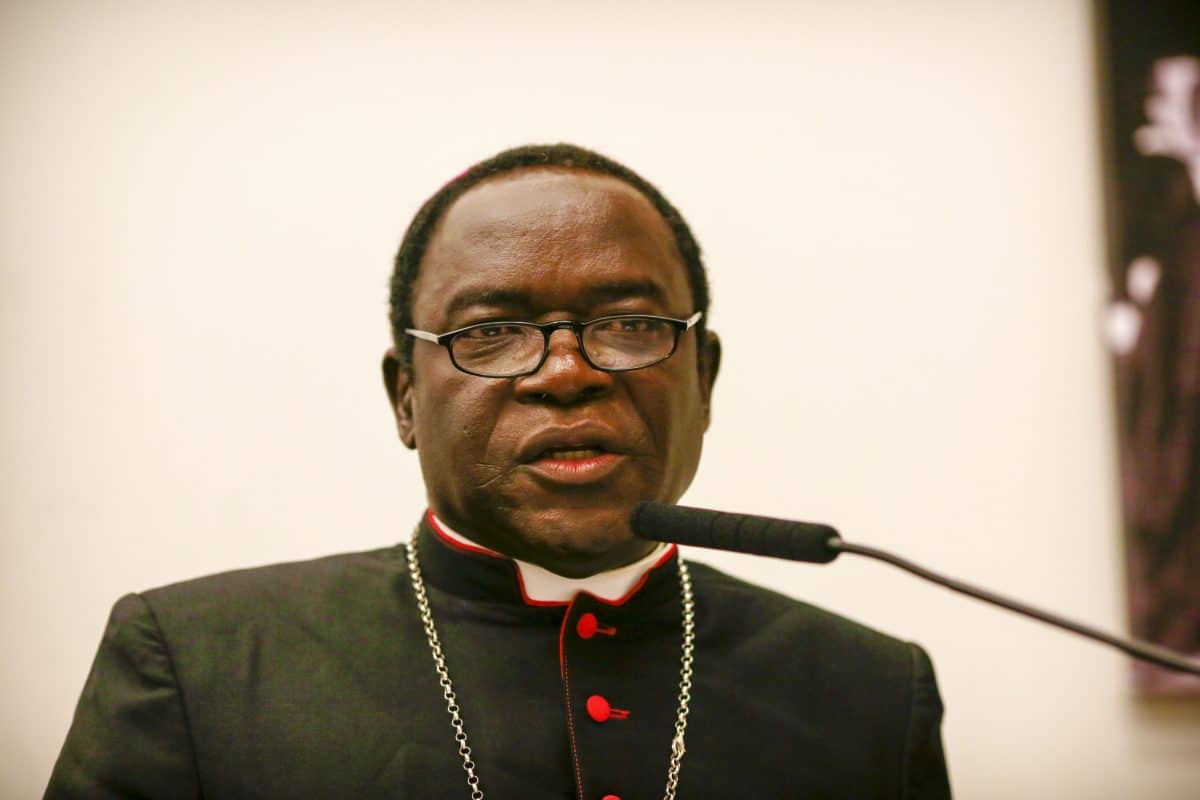The Bishop of Sokoto Diocese, Mathew Hassan Kukah, has blamed the recent tragic stampedes in Oyo and Anambra states as well as Abuja on the failures of the government to respond actively to the hunger in the land.
He also noted with dismay that Nigeria was still walking in darkness despite attaining independence over 60 years ago.
In his message to Christians on the occasion of this year’s Christmas celebration Bishop Kukah lamented that Nigeria’s lack of visible and measurable progress was tied to the fact that the country had chosen darkness rather than light.
“Imagine if we let the light shine on our public service, on our politics, on our individual, community and national life, on our public institutions. Imagine what Nigeria would be like if we chose light instead of darkness.
“Our journey to greatness is still severely constrained by the forces of ethnicity, nepotism, and greed. There is still the lingering anxiety that ethnicity and religion trump common citizenship in terms of access to opportunities. Feelings of exclusion drive citizens to the fringes of violence and frustration.
- Delays, overcrowding mar free train ride
- Leprosy: FG tasked on life-saving drugs for over 3,000 patients
“We are still unable to come to terms with the ideals of our national anthem that says: though tribe and tongue may differ, in brotherhood we stand. Diversity is a gift of God. Let us use it effectively as a tool for national mobilization and cohesion,” he said
The Bishop also spoke on the issues discouraging Nigerian youths from participating actively in politics, saying the costs of running for public office was the major obstacle for youth participation in politics.
“In 2018, the passage of the Not Too Young to Run Bill was widely greeted by young people who believed that the doors had now opened for their active engagement in politics. After a few elections, many young people have been elected at various levels. This is commendable.
“However, problems of internal democracy, the costs of running for public office, still remain major obstacles for youth participation in politics,” he reiterated.
The Bishop, however, commended the federal government for the educational loan schemes, advising that, the act should not limit access only to university students but to those also seeking vocational or technical skills.
He further advised that the scheme should be free of the usual bureaucratic bottlenecks and favouritism so as to expand the scope of opportunities for our youth and their parents.
“Hopefully, in future, poverty should not exclude anyone from a good education. We encourage the youth to seize this opportunity with both hands,” he said.
Despite acknowledging some progress made in the fight against insecurity in the country, Bishop Kukah recommended for a comprehensive work plan to secure our nation, with a clear datelines.
“Insecurity is the first child of corruption. We cannot win the war against insecurity without addressing the issues of unemployment and violent religious extremism which create the conditions for violence,” he added.
On the recent stampedes in some parts of the country, he blamed it on the failure of the government to respond concretely toward ending the horrible crisis of hunger and desperation in the country.
“The tragedies that occurred in Okija, Ibadan, and Abuja where innocent people lost their lives in stampedes at food distribution points are a metaphor for the situation of desperation that citizens have been thrown into.
“The failures of government to respond concretely toward ending the horrible crisis of hunger and desperation has created the conditions for these avoidable tragedies.
“Citizens are lapsing into despair. The Catholic Church is not new to providing succour for the needy and vulnerable. Under the auspices of St. Vincent de Paul, the Church continues to provide succour to the poor across the wider society. These tragedies were avoidable.
“Government needs to work more closely with institutions that help to promote the common good of our society. May God grant eternal rest to the dead and console their families. It is the duty of government to ensure minimum dignity for our people,” he said.

 Join Daily Trust WhatsApp Community For Quick Access To News and Happenings Around You.
Join Daily Trust WhatsApp Community For Quick Access To News and Happenings Around You.

